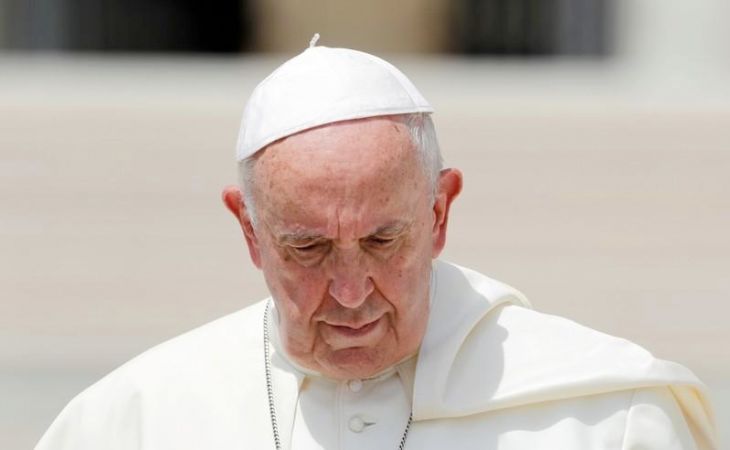Last week, Pope Francis celebrated ten years as Pope. Throughout his papacy, he has focused on demonstrating that the Catholic Church is an organic institution, capable of changing with the times, and of accepting old truths rather that the current “man-made theology” that governs the Church as an institution.
I say “man-made” because the Church’s founder, Jesus Christ, preached two broad commandments: love God and love your neighbor.
Generations of Catholic theologians have since created a complex theology based on the accumulation of power and exclusion rather than the spreading of universal love and inclusion. This has driven the Church towards irrelevancy among many former followers.
Issues such as women in the priesthood, LGBTQ rights, and the rights of divorcees to partake in the sacraments, have led the Church to appear rigid, insensitive and exclusionary when its founder sought an inclusionary Church open to all.
Pope Francis is seen by many as a leader seeking to create a new dawn for the Church. A liberal minded cardinal from Argentina, he has tried to reform the Church’s message from one of oppression to one of love, to one of inclusion rather than exclusion. In this he has raised the ire of conservative clerics and those who believe that the Church must stay its course despite the major social and cultural changes of the past fifty years.
According to a recent article in The New Yorker, Paul Elie writes that, since his arrival in Rome, Francis has made the unexpected seem obvious again and again. Of course, the Pope should confess his sins before hearing the confessions of others; wade into a crowd outside St. Peter’s and embrace a man whose illness had left his face marred; visit a camp for migrants and refugees on the Greek island of Lesbos (and bring some refugees back on the papal plane to settle in Italy); go to a mosque in the Central African Republic in the midst of a civil war fuelled by Christian-Muslim strife; and admit that he was wrong to have defended a Chilean bishop accused of covering up priestly sexual abuse. (Though the bishop, Juan Barros, has denied these allegations, the Pope accepted his resignation and averred, “I was part of the problem.”)
Humility, a willingness to admit mistakes, and a willingness to face difficult issues head-on rather than simply ignore them have made him a breath of fresh air in the Vatican.
He has radically transformed the Vatican Bank that was plagued by corruption in the past. He has underscored the importance of environmentalism as well as critiqued laissez faire capitalism, which he has called the “dung of the devil”. He has been highly critical of populist leaders who divide people rather than unite them and has decentralized some decision making to bishops. Many women also occupy senior administrative positions though they still cannot become priests.
Can this breath of fresh air remain after Francis’s retirement or passing?
Of the 132 cardinals eligible to vote in the next conclave, Francis has named 83 – most of them from the South. That is almost 2/3 of the College of Cardinals, nearly enough to vote for a new Pope. It stands to reason that Francis has elevated supporters of his broad vision for the direction that the Church should take to the ranks of the College of Cardinals, and to sustain his legacy against the still powerful conservative elements of the hierarchy and followers.
We must remember that the role of women and their oppression in many countries is still a matter for debate. Meanwhile, in many African and Asian countries the rights of LGBTQ Christians are still proscribed and, in some, punishable by imprisonment or death.
Francis has been a transformational figure for the Church in this century.
As someone who believes in individual freedom and the right of each of us to love and marry as we see fit, and who sees women as the equal of men in all respects, I cannot help but celebrate Francis’s passage in a world still dominated by theocratic absolutism rather than simple love and respect for each other.
But when it comes to LGBTQ, he spoke out against what he called “gender theory” in 2015 criticizing the idea that people can choose their gender identity saying it was a threat to traditional family values. In his 2019 book, he spoke out against trans-genderism as a step backwards for humanity (the annihilation of man) so while he has progressive views on homosexuality, he still holds very traditional views on gender and sexuality – the “T” in LGBTQ. I am not judging but he still holds traditional views.
Indeed, while I welcome his refreshing belief in the transformative power of love and the need for the Church to reach out rather than condemn, the church still has a long way to go before it treats every believer equally. Pope Francis now has to begin the process of institutionalizing his vision, and in this he must face the strong opposition of conservative elements who still wield significant power in the church.
Keep reading: Silicon Valley Bank
Edition: Estefanía Cardeña
Partir desde la realidad, la comunidad y el aula
Cristóbal León Campos
El ingenio y la comicidad presentes en la obra inmortal del italiano Pergolesi
Jesús Mejía
Armando González, Efraín Álvarez y Jesús Garza, jugadores a seguir
Efe
Autoridades realizaron una inspección preventiva a una unidad de paquetería en un punto cercano a Teya
La Jornada Maya
